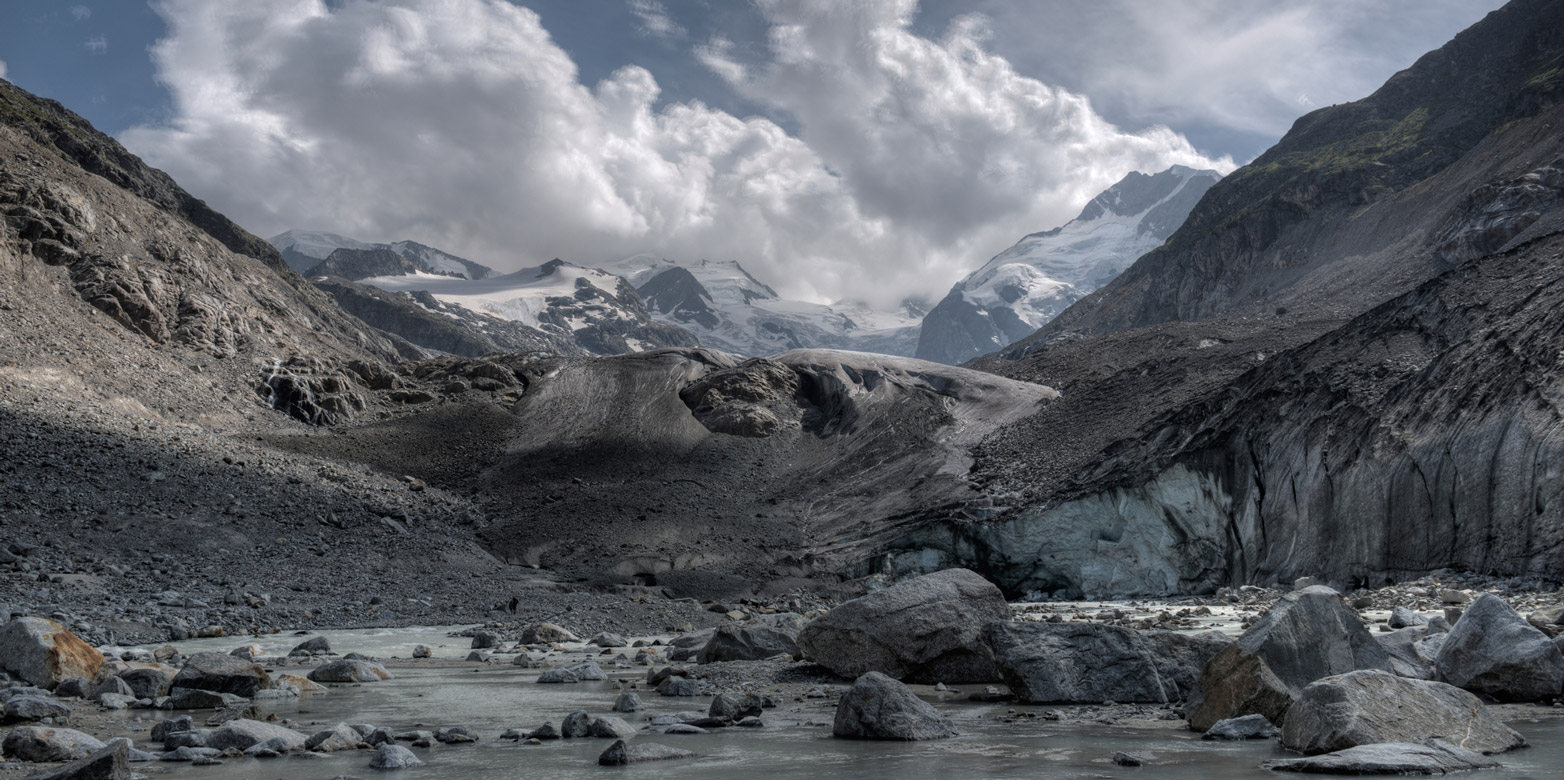“Gletscher-Initiative”: Setting course towards 1.5°C
The vision of a climate-neutral Switzerland by 2050 is neither radical nor utopian. Indeed, we should seriously pursue this goal given what is at stake, says Sonia Seneviratne.

Current measures to counteract climate change are deeply inadequate. The collection of signatures for the Swiss “Gletscher-Initiative” 1 (glacier initiative) started on May 10. As a member of the scientific advisory committee for the initiative, and as a lead author of the recent IPCC Special Report on 1.5°C Global Warming2 (see also this blog post), it is personally and professionally important to me to provide background on this initiative and on its relevance if we want to live up to the Paris Agreement.

Consistent with the IPCC SR15 report
The glacier initiative aims to reach net-zero CO2 emissions in Switzerland in 2050. Based on the IPCC SR15 report, this is compatible with limiting global warming to 1.5°C, if all countries were to do the same. As a highly developed country, Switzerland has some of the best tools available to show how the world can achieve this.
Reaching this goal earlier would be even better: it would improve the world’s chances of not exceeding 1.5°C while allowing some developing countries more time for the energy transition. Nevertheless, setting a 2050 deadline for reaching net-zero emissions in Switzerland would at least ensure that the country does not contribute to overshooting the 1.5°C global warming target.
We need to act now
The IPCC SR15 report shows that we need at least to halve our CO2 emissions by 2030 in order not to exceed 1.5°C of global warming. Given the inertia of our society (e.g. committed emissions due to existing infrastructure), this means that we need to act immediately to have a chance of achieving this goal.
«It is widely accepted that we are in a situation of climate emergency – but there are of course open questions on how reach net-zero CO2 emissions.»Sonia Seneviratne
Furthermore, substantially overshooting 1.5°C of global warming (i.e. by more than 0.1°C) with the intention of reducing warming later is a dangerous option. Such overshooting could already usher in large changes in the climate system and irreversible impacts3, such as the extinction of certain plant or animal species4.
An ambitious but realistic goal
Since excess CO2 stays in the Earth’s atmosphere for a very long time – several hundred or even thousands of years – we need to focus seriously on how to end the use of fossil fuels, i.e. on decarbonisation. Given the lack of climate action in the past 30 years, we need to recognise that a shift towards a decrease of CO2 emissions leading to a net-zero budget in 2050 does imply a major shift in paradigm. But does this also imply a lower quality of life, or that this aim is unrealistic? The latest report by the UK Committee on Climate Change (CCCUK) suggests that this is not the case5.
The CCCUK concludes that the UK, a country at a level of development similar to Switzerland’s, could realistically achieve a net-zero CO2 budget by 2050, including emissions associated with shipping and plane travel. The CCCUK estimates that the associated costs would be limited to approximately 1–2% of GDP and that there would be numerous benefits for the economy and individuals, in addition to the avoided impacts of climate change.
Debating decarbonisation
There is no controversy regarding the fact that enhanced CO2 leads to global warming and climate impacts, and it is widely accepted that we are in a situation of climate emergency6 – but there are of course open questions on how reach net-zero CO2 emissions. I am convinced that the glacier initiative will foster a healthy debate on the most acceptable solutions to decarbonise our economy and society.
References
1 external page Klimaschutz Schweiz
2 IPCC special report on 1.5°C global warming: external page IPCC SR15
3 Seneviratne et al. (2018): external page The many possible climates from the Paris Agreement's aim of 1.5°C warming. Nature. 558, 41-49
4 Science (2018): external page The projected effect on insects, vertebrates, and plants of limiting global warming to 1.5°C rather than 2°C
5 UK Committee on Climate Change (CCCUK): external page Net Zero – The UK’s contribution to stopping global warming
6 Science (2019): external page Concerns of young protesters are justified
Comments
No comments yet